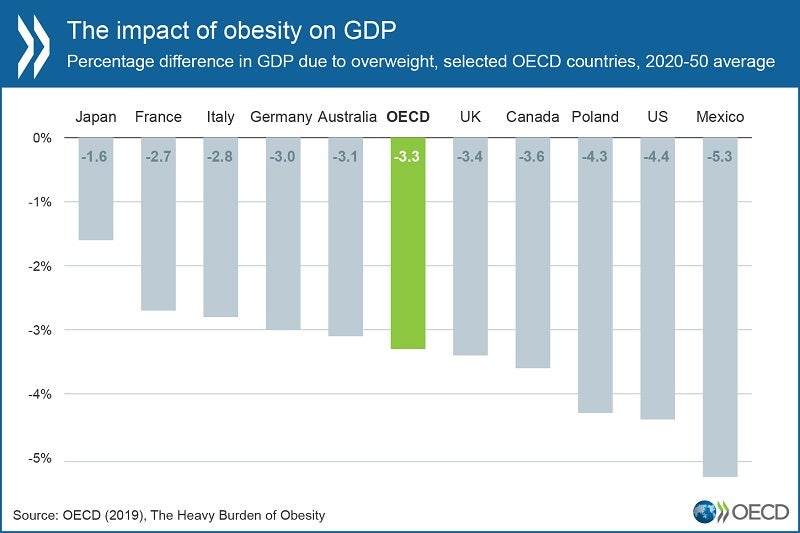
More than 90 million people will die from diseases linked to obesity in the next 30 years, according to a study by the Organisation for Economic Co-operation and Development (OECD).
The report analysed the economic, social and health costs of the increase in the number of people who are obese or overweight in 52 countries, including OECD, the European Union (EU28) and Group of 20 (G20) countries.
With more than half of the population now overweight in 34 out of 36 OECD countries and nearly one in four people obese, the average rate of adult obesity in OECD countries has increased from 21% in 2010 to 24% in 2016.
According to the OECD, from 2020 to 2050 life expectancy will reduce by three years in OECD, EU28 and G20 countries due to people being overweight and obesity-related issues.
The study found that children are missing out because of obesity, as children at a healthy weight are 13% more likely to perform well at school over children with obesity. Overweight children do less well at school, from getting lower marks to missing school, leading to being less likely to complete higher education in later life. They show lower life satisfaction and are more likely to be bullied contributing to a lower performance in school.
Being obese and overweight in adulthood leads to adults having at least one chronic disease and 8% are less likely to be employed the following year, with overweight adults in employment being 3.4% more likely to be absent or less productive.
How well do you really know your competitors?
Access the most comprehensive Company Profiles on the market, powered by GlobalData. Save hours of research. Gain competitive edge.

Thank you!
Your download email will arrive shortly
Not ready to buy yet? Download a free sample
We are confident about the unique quality of our Company Profiles. However, we want you to make the most beneficial decision for your business, so we offer a free sample that you can download by submitting the below form
By GlobalDataOECD secretary-general Angel Gurria said: “There is an urgent economic and social case to scale up investments to tackle obesity and promote healthy lifestyles. These findings clearly illustrate the need for better social, health and education policies that lead to better lives. By investing in prevention, policymakers can halt the rise in obesity for future generations, and benefit economies. There is no more excuse for inaction.”







